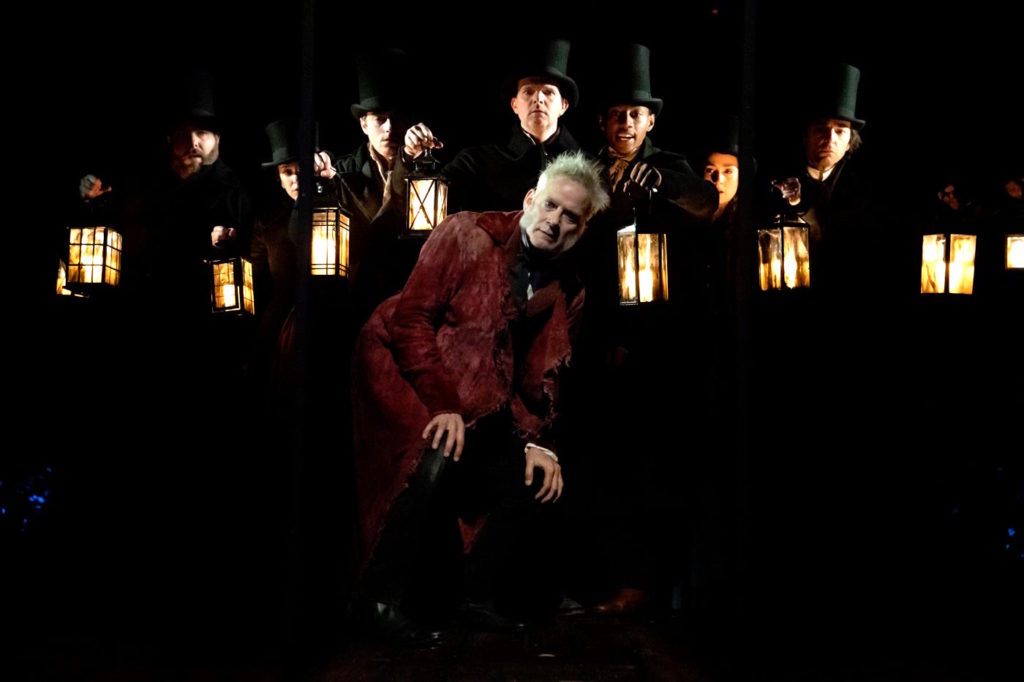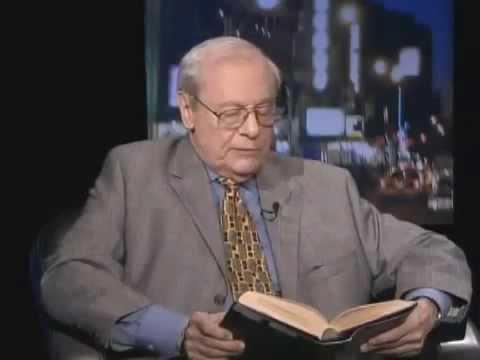“First of all, dismiss ideas, and social background, and train the freshman to shiver, to get drunk on the poetry of Hamlet or Lear, to read with his spine and not with his skull.”
Vladimir Nabokov, Pale Fire
Terry Teachout on the arts in New York City
“First of all, dismiss ideas, and social background, and train the freshman to shiver, to get drunk on the poetry of Hamlet or Lear, to read with his spine and not with his skull.”
Vladimir Nabokov, Pale Fire
* * *
How good can a jukebox musical hope to be? Only modestly, in my experience. Even when the book is well-written, it typically fails to mesh with the songs, which were composed before the fact and thus have no organic relationship to the plot. Nor do they drive the action of the show: Each one is a free-standing entity which says its piece and stops, stopping the show with it. This latter problem is harder to solve if you’re trying to turn an album into a musical. Unless the individual songs are already “chapters” in a larger story, the results almost always lack dramatic momentum (and also tend to be short on musical variety)….

All of which brings us to the Broadway transfer of “Jagged Little Pill,” which originated at the American Repertory Theater in Cambridge, Mass., and whose marquee declares it to be “inspired by” Alanis Morissette’s grunge-flavored pop album about teenage love and life. Most of the songs, co-written by Ms. Morissette and Glen Ballard, come from the album, whose release in 1995 led Rolling Stone to dub Ms. Morissette “Queen of Alt-Rock Angst.” The stage version, by contrast, is a cliché-prone chronicle of suburban spiritual emptiness whose book is by Diablo Cody (“Juno”) and whose characters include a “perfect” mother (Elizabeth Stanley) who is secretly addicted to opiates and her black, bisexual adopted daughter (Celia Rose Gooding), who is…well, angst-ridden.
The results play like a cross between “American Beauty” and “Next to Normal,” and if that notion appeals to you, then you might enjoy “Jagged Little Pill.” Me, I found it leaden with earnestness. Teen angst, lest we forget, isn’t all that interesting when seen from the outside…
* * *
Read the whole thing here.A video featurette about the stage version of Jagged Little Pill:
* * *

Matthew Warchus, one of England’s top directors, has collaborated with Jack Thorne, author of “Harry Potter and the Cursed Child,” on a Broadway “Christmas Carol” that I presume has hopes of becoming an annual staple. Nor would I be surprised if it does: It’s a warm-hearted staging full of clever audience-participation tricks that children will find hard to resist. I only wish it were truer in spirit to the novella, which Messrs. Thorne and Warchus have watered down to the point of insipidity. “A Christmas Carol,” after all, is supposed to be frightening—Dickens’ Scrooge is shocked, not sweet-talked, into changing his miserly ways while he still can—but this triggerless version is devoid of supernatural scare tactics, opting instead to present Scrooge as a victim of bad parenting…
* * *
To read my review of A Christmas Carol, go here.The trailer for A Christmas Carol:
In an excerpt from Stravinsky, a 1965 documentary by Wolf Koenig and Roman Kroitor, Igor Stravinsky and Nicholas Nabokov have a drink together in Hamburg in 1965, then attend a recording session for Stravinsky’s Symphony of Psalms:
(This is the latest in a series of arts- and history-related videos that appear in this space each Monday, Wednesday, and Friday)
“Let the credulous and the vulgar continue to believe that all mental woes can be cured by a daily application of old Greek myths to their private parts.”
Vladimir Nabokov, Strong Opinions
In today’s Wall Street Journal “Sightings” column I take note of the death of John Simon. Here’s an excerpt.
* * *
The Finnish composer Jean Sibelius, who had various kinds of critic trouble throughout much of his career, hit the bull’s-eye when he observed that “a statue has never been set up in honor of a critic.” It’s true, though, that two Broadway theaters, the Brooks Atkinson and the Walter Kerr, are named after drama critics, both of whom were widely admired by the men and women about whom they wrote. On the other hand, the best-known drama critic of the 20th century, Addison DeWitt of “All About Eve,” was a fictional character, a writer with a famously sharp tongue who believed himself to be “essential to the theater” but was in fact despised by most of his fictional victims. I can’t imagine that any of the characters in “All About Eve” would have wanted to see a Broadway theater named after him—any more than I can imagine that one will ever be named after John Simon.

Mr. Simon, who died last week at the age of 94, is the only American drama critic in my lifetime to have been widely known by name outside the profession, enough so that he actually made a cameo appearance on a 1974 episode of “The Odd Couple.” He played himself, of course, a dispenser of critical venom notorious for panning most of the shows he reviewed. That was the source of his power, together with his willingness to write about actors in a way widely felt to be cruel. He was well aware that this cruelty was the main reason why he was read week after week—and so were his editors, who printed his reviews precisely because not a few of them were so cruel that you couldn’t help but talk about them, and remember them….
Fortunately, there were and are better reasons to read what he wrote, not merely about film and theater but also opera and the novel. He was immensely, comprehensively knowledgeable, and whenever he liked something, you could be sure that it was worthy of close attention. Moreover, the ruckus that his pans raised has caused people to forget that he didn’t hate everything. In fact, Mr. Simon was every bit as good at expressing enthusiasm as he was contempt…
* * *
Read the whole thing here.John Simon is interviewed on Signature, a CBS Cable series, in 1981:
“No free man needs a God; but was I free?”
Vladimir Nabokov, Pale Fire
* * *

Before “Angels in America,” there was “A Bright Room Called Day,” the 1985 history play in which Tony Kushner tried out some of the same expressionistic storytelling techniques that “Angels” would make famous a few short years later. Oskar Eustis, whose association with Mr. Kushner is of long and productive standing, thinks the time is ripe for a revival, and it’s not hard to see why. The premise of the play, set in Germany at the moment in 1933 when the Nazis came to power, is that Hitler triumphed for roughly the same reason that Ronald Reagan was elected: Both men assured their disaffected followers that liberal democracy was the reason for, not the solution to, the troubles of the time. President Trump, Mr. Kushner argues, is doing the same thing today.
No matter what you think of this notion, I suspect that you will find “A Bright Room Called Day,” whose characters are a gaggle of artsy types who can’t decide how to respond to the collapse of their world, to be long on anguish and short on coherence….
* * *
To read my review of A Bright Room Called Day, go here.A video featurette about A Bright Room Called Day:
Ralph Ellison talks about his never-completed second novel in an interview originally telecast on public TV in 1966:
(This is the latest in a series of arts- and history-related videos that appear in this space each Monday, Wednesday, and Friday)
“The clumsiest literal translation is a thousand times more useful than the prettiest paraphrase.”
Vladimir Nabokov, “Problems of Translation: ‘Onegin’ in English”
| M | T | W | T | F | S | S |
|---|---|---|---|---|---|---|
| 1 | 2 | 3 | 4 | |||
| 5 | 6 | 7 | 8 | 9 | 10 | 11 |
| 12 | 13 | 14 | 15 | 16 | 17 | 18 |
| 19 | 20 | 21 | 22 | 23 | 24 | 25 |
| 26 | 27 | 28 | 29 | 30 | 31 | |
An ArtsJournal Blog